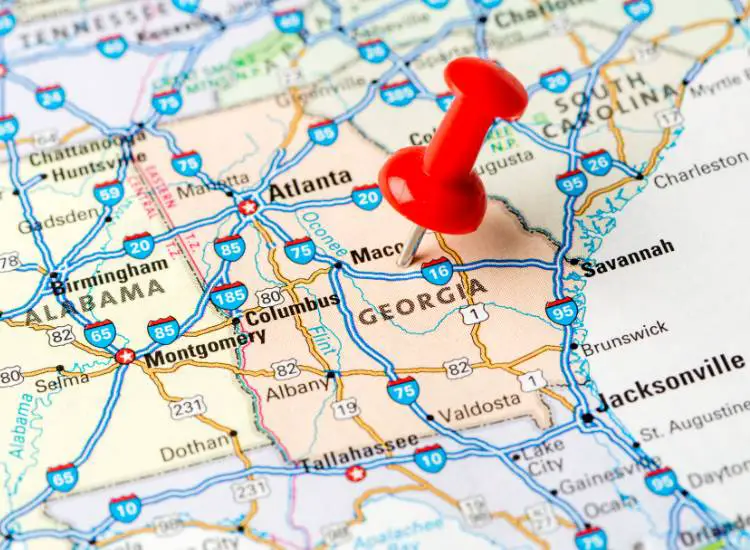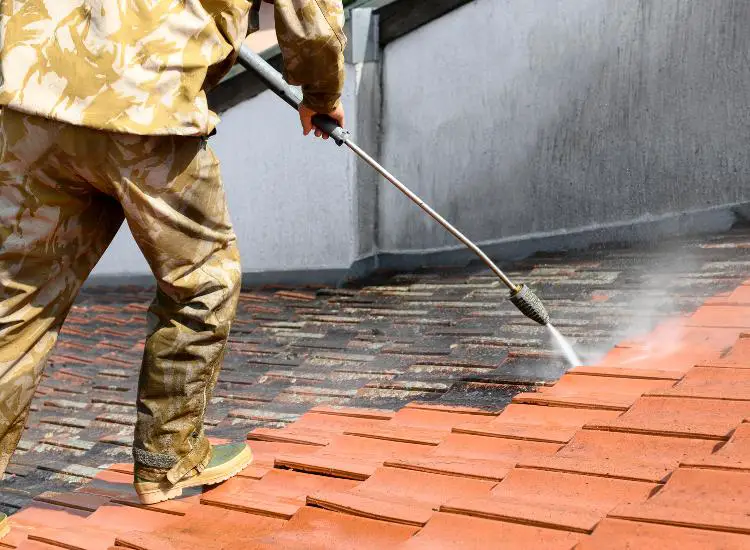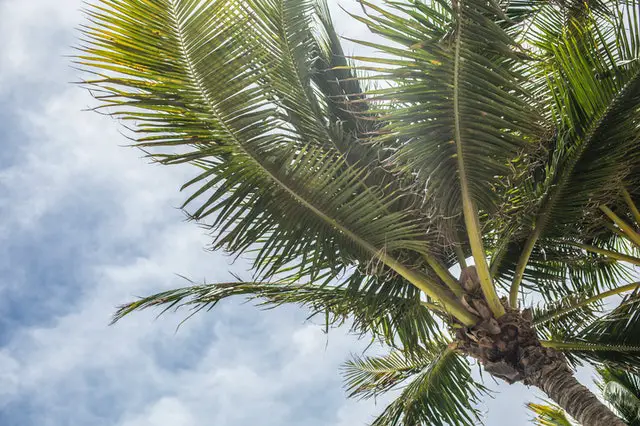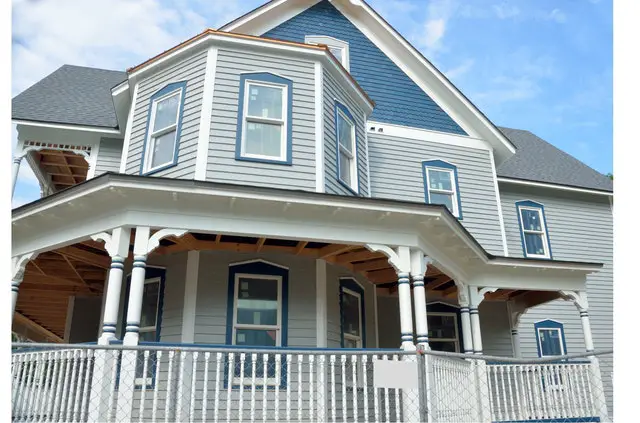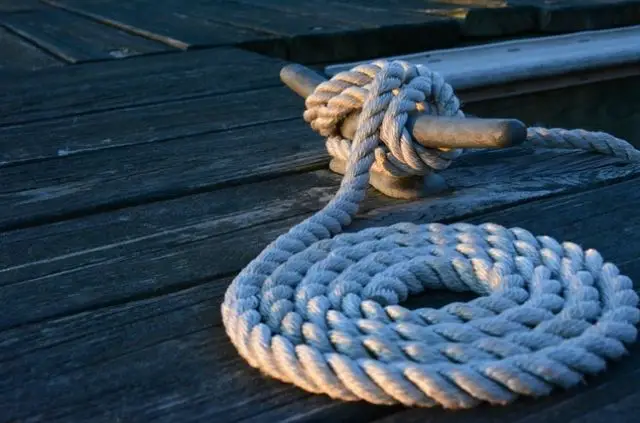Does Pressure Washing Increase Water Bill?
Wondering if a pressure washer will increase your water bill? Using this machine around the house is a useful way to clean dirty surfaces.
A pressure washer is capable of stripping paint off wood and metal, but also safe enough to wash a car with. These tools can push out a large amount of water, which makes you wonder if it will impact your water bill.
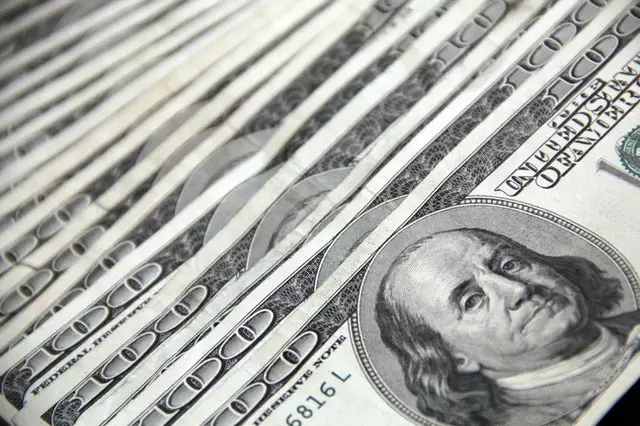
A pressure washer can increase your water bill – but it depends on how you use it. You won’t notice a price difference if the machine is only being used for a weekly car wash.
But if you plan on spending 8 hours cleaning a driveway, your water bill could be higher. Let’s take a look at how a pressure washer can empty your wallet.
Does Pressure Washing Use a lot of Water?
There are a few things to keep in mind that will determine how much water is being used – GPM (gallons per minute) and run time.
What you don’t have any control over is the price of water. This is determined by your local government and it can greatly impact the overall bill.
Understanding GPM & PSI
Power is buzzword when it comes to machines. It doesn’t matter if you’re buying a sports car or tool, because we often think that more power is better. However, when it comes to pressure washers having the highest GPM, power output isn’t always superior.
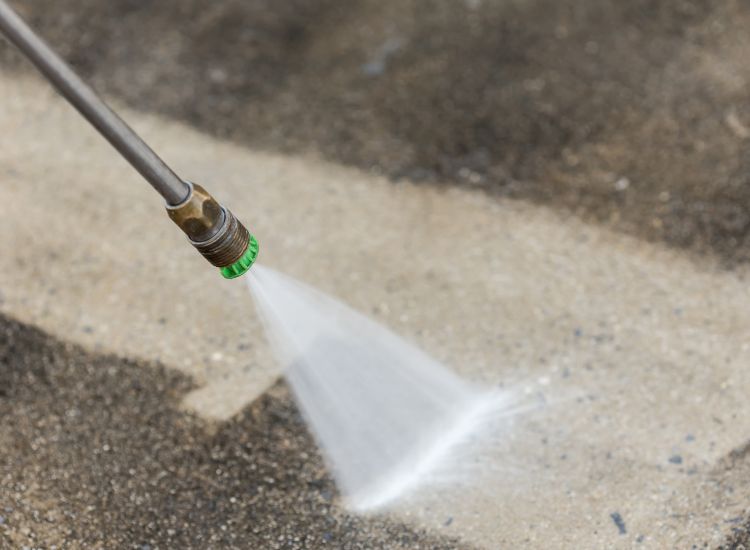
A higher GPM pressure washer will use more water (and money). It also helps to understand the PSI (per square inch) of pressure washers. This refers to the level of cleaning pressure the machine can produce.
PSI won’t have any impact on your water bill, but you can figure out the cleaning units by multiplying it with the GPM. For example, a pressure washer with 4,000 PSI and 4 GPM has 16,000 cleaning units.
Cost & Time of Project
You can figure out how much water is being used when combining GPM and run time of the pressure washer. A pressure washer with 4 GPM running for 60 minutes will produce 240 gallons of water.
Take this number and apply it to a common pressure washing task like cleaning a house, or driveway.
| GPM | Run Time | Water |
| 2.0 | 60 minutes | 120 gallons |
| 3.0 | 60 minutes | 180 gallons |
| 4.0 | 60 minutes | 240 gallons |
| 5.0 | 60 minutes | 300 gallons |
GPM x minutes = gallons
If you spend 8 hours doing one of these tasks, that would be 1,920 gallons of water! Keep in mind, this number is based on the idea that you are holding down the trigger for 8 hours straight.
But even if a pressure washer is being run on and off all day, you will still use a considerable amount of water (which will add up in cost).
Current Cost of Utilities
Electricity, gas, and water are just some utilities homeowners pay. It would be great if these monthly costs never went up (or at least stayed the same) but that isn’t the case.
As a result, these household utilities will go through price fluctuations based on a number of different factors that we can’t control. It’s impossible to say how much water costs, because it greatly depends on where you live.
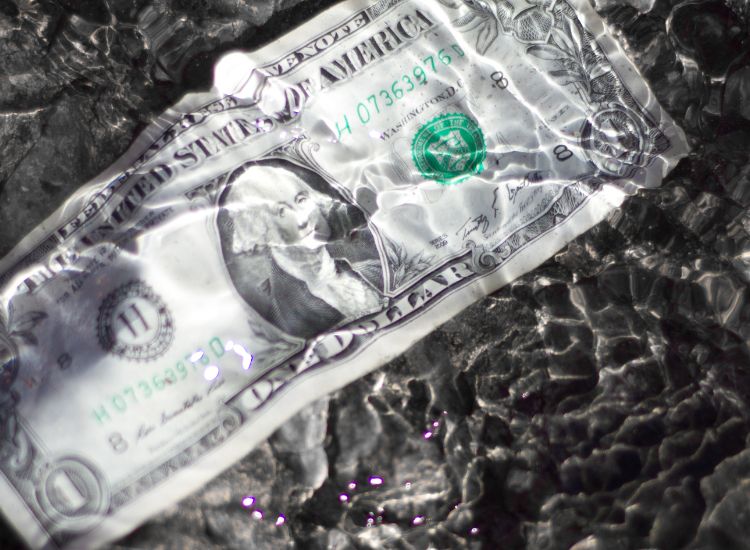
When looking at 2023 water usage data, the average highest water bill was West Virginia ($91). Compare this with the average lowest water bill in Florida ($6). You can see there’s a considerable price difference between these two states.
Does Less GPM Save Money?
You might think that buying a pressure washer with a lower GPM will save you money – because it will use less water. But this isn’t always the case. Let’s say it takes you 1 hour to clean a patio with a 4.0 GPM pressure washer.
That’s a whopping 240 gallons of water being used. It seems like a lot right? But what if it took you 3 hours to clean the same surface area with a 2.0 GPM pressure washer.
That’s 360 gallons of water, which is more water usage than the more powerful tool. Even though this is just one example, it shows how a higher GPM can actually save money, because more power can save on time.
The Solution: Use a Detergent
Most pressure washers sold today come with an attached soap canister. This allows you to spray a mixture of water and detergent on the surface you are cleaning. So, how does using soap save money?
The answer is simple. This process will spray a high volume of detergent at a lower water pressure. As a result, the cleaning agent will be just as effective and save money by requiring less water.
There’s no reason to use the highest pressure setting for every task. An aggressive nozzle can help clean tough surfaces like concrete and asphalt, but they shouldn’t be used on house siding. That’s where less pressure and a detergent can help.
Soft Washing Process
Using a cleaning detergent is more commonly known as soft washing. This process can help clean roofs, stucco, and other delicate surfaces.
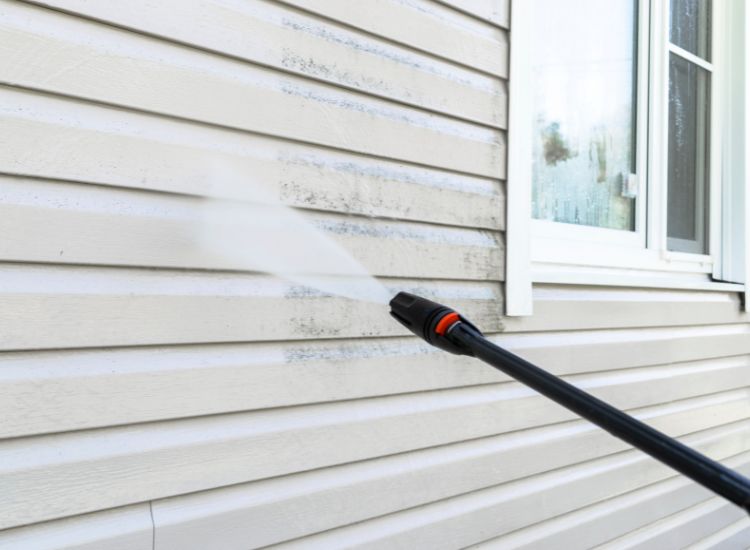
A high GPM pressure washer would normally cause damage to these fragile areas. But they can be washed in a safe way with a powerful detergent mixed with a low amount of water pressure.
Soft washing can be a DIY job, or outsourced to a licensed professional. Let’s walk through the general process of soft washing.
1. Area preparation
Before starting any project, it’s important to organize your work area. This will ensure that you are operating in a clean and safe environment.
For outdoor projects, move any vehicles, patio equipment, and children’s toys out of the way. You don’t want to damage any of these items during the cleaning process.
2. Over-water plants
Once the area is clear, make sure to over-water any plants and shrubs surrounding the home. Most detergents contain chemicals that will kill any plants in the area.
When you over-water these plants, the soap can get on them and won’t cause any harm as a result. Another other option is to place a tarp over the plants for more protection.
3. Clean the second level
When working on a second story home, you always want to start cleaning at the top. This technique helps prevent dirt from getting on areas that have already been cleaned.
You want to follow this process even on single story homes. Let gravity do most of the work by pulling all of the dirt and grim off of the house.
4. Rinse excess soap
Once the entire home has been cleaned, make sure to thoroughly rinse the remaining surfaces. This will guarantee that any leftover soap has been removed from the siding.
Any remaining detergent can sit in the sun and cause discoloration. Lastly, go over any plants with one more spray to make sure they are free of soap.
Final Thoughts
Even though pressure washing can increase your water bill, it shouldn’t be something to worry about. Cleaning your entire house will take a lot of water, but this isn’t a task that happens very often.
Consider soft washing if you’re still concerned with the water bill. This process will use less water and cost less money as a result.
Further Reading
Search Terms
- does pressure washing increase water bill?
- how pressure washing can increase water bill


